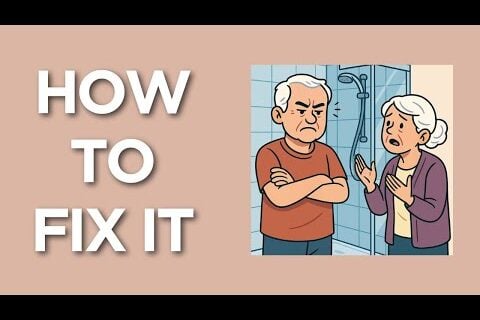Light therapy leads to significant improvements in sleep and psycho-behavioral symptoms for patients with Alzheimer’s disease, according to a new study published this week in the open-access journal PLOS ONE by Qinghui Meng of Weifang Medical University, China, and colleagues.
Here are some tips for the most basic light therapy.
- Begin early in the morning. Try to get in some light exposure before 10 A.M. This helps set the body’s circadian rhythm, which can help reduce “Sundowning Syndrome” and make it more likely to fall asleep at night at a healthy hour.
- Keep a “light” touch. Absorb the lamp’s light for a minimum of a half hour each day. It’s OK to do this in a few separate sittings.
- Don’t look into the light. The person with Alzheimer’s shouldn’t have the lamp placed directly in front of them.
- Get enough light. Therapy lamps are rated by the number of LUX they put out. Get one with at least 10,000 lux. Amazon has great light therapy offerings.
Alleviates Caregiver Burden, Depression, Agitation
The cognitive decline associated with Alzheimer’s disease is often accompanied by sleep disturbances and psycho-behavioral symptoms including apathetic and depressive behavior, agitation and aggression. Photobiomodulation is a non-pharmacological therapy that uses light energy to stimulate the suprachiasmic nucleus (SCN), a sleep modulator in the brain. Despite light therapy receiving increased attention as a potential intervention for Alzheimer’s, a systematic evaluation of its efficacy and safety has been unavailable.
In the new study, researchers searched multiple research databases to identify all randomized controlled trials related to light therapy intervention for Alzheimer’s disease or dementia. Fifteen high-quality trials with available methods and relevant outcomes were selected for further analysis. The included trials were written in English, published between 2005 and 2022, and performed in seven countries. They included a combined 598 patients.
The meta-analysis of all fifteen trials found that light therapy significantly improved sleep efficiency, increased interdaily stability (a measure of the strength of circadian rhythms), and reduced intradaily variability (a measure of how frequently someone transitions between rest and activity during the day). In patients with Alzheimer’s disease, light therapy also alleviated depression and reduced patient agitation and caregiver burden.
Future Studies, Few Side Effects
Given the limited sample sizes in studies included in this meta-analysis, the authors advocate for larger future studies, which could also explore if bright light exposure could cause any adverse behavior in patients. They conclude that light therapy is a promising treatment option for some symptoms of Alzheimer’s disease.
The authors add: “Light therapy improves sleep and psycho-behavioral symptoms in patients with Alzheimer’s disease and has relatively few side effects, suggesting that it may be a promising treatment option for patients with Alzheimer’s disease.”
More Information:
Reference
Funding
- This work was supported by the Natural Science Foundation of Shandong Province (ZR2020MH128).










